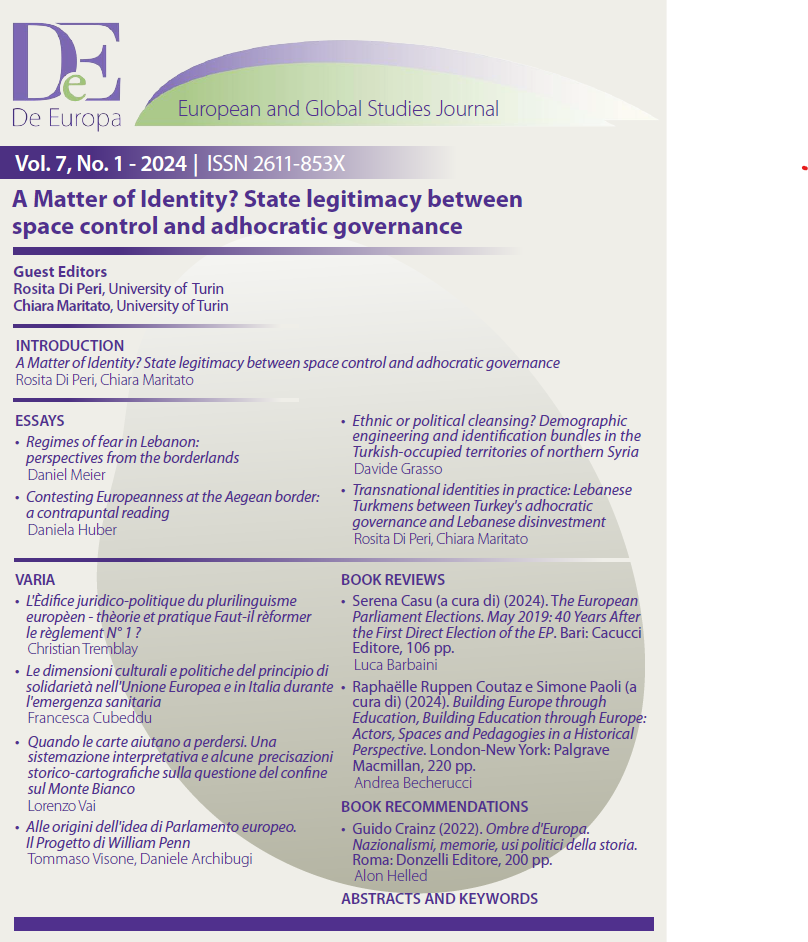Ethnic or political cleansing? Demographic engineering and identification bundles in the Turkish-occupied territories of northern Syria
DOI:
https://doi.org/10.13135/2611-853X/10572Abstract
The paper analyses the military invasions and demographic engineering perpetrated by the Republic of Turkey
in the Syrian Arab Republic from 2016 to 2024. In particular, it focuses on the lasting effects of the 2018 and
2019 invasions to address the following question: Which identification process is more relevant to understan-
ding the Turkish operations and the related demographic change? To support this analysis, the study utilises
documentary and ethnographic qualitative resources. After outlining the sources and their limitations, the
paper sets forth the methodological, theoretical and terminological tools used, later clarifying the historical
context of the ongoing conflict between the Syrian national army, supported by Turkey, and the Syrian demo-
cratic forces that Turkey aims to neutralise. Grounded in processual-relational thinking (p-rt), this study seeks to
provide a new and original categorisation of the relevant identification bundles. It proposes moving beyond
the categories of “culture” and “ethnicity”, which are often vague and reductionist, and instead distinguishes
between “ancestral” and “hermeneutic” identification bundles. The former is defined by normative horizons tied
to inherited commonalities that relate to language, customs and religious denominations, while the latter
encompasses unique interpretations of these legacies through political programs and legal commitments.
Based on the gathered evidence, the research assesses which of these bundles is more relevant to defining the
conflict between the SNA and the SDF and the ensuing demographic engineering process. While both bundles
prove relevant, the hermeneutic bundle emerges as preponderant.
Keywords: Demographic Engineering, Identification bundles, Ethnicity, Rojava, Turkey




 The journal has been approved for inclusion in DOAJ. The DOAJ listing of the journal is available at
The journal has been approved for inclusion in DOAJ. The DOAJ listing of the journal is available at 

